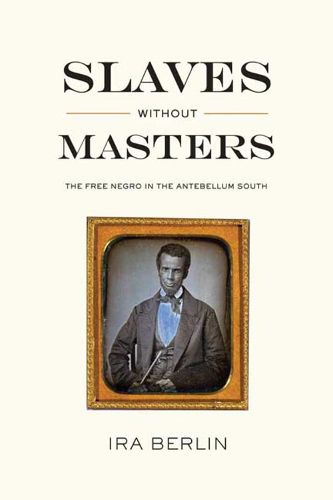Readings Newsletter
Become a Readings Member to make your shopping experience even easier.
Sign in or sign up for free!
You’re not far away from qualifying for FREE standard shipping within Australia
You’ve qualified for FREE standard shipping within Australia
The cart is loading…






Widely recognized as one of the nation’s foremost scholars on the slave era (Boston Globe), Bancroft Prize-winning historian Ira Berlin has changed the way we think about African American life in slavery and freedom. These two classic volumes, now available in handsome new editions, are indispensable resources for educators and general readers alike.
First published to great acclaim in 1974, Slaves Without Masters established Berlin in his field and went on to win the National History Society’s Best First Book Prize. It tells the moving story of the quarter of a million free black men and women who lived in the South before the Civil War, portraying with careful scholarship, acute analysis, and admirable historical imagination (The New Republic) their struggle for community, economic independence, and education within an oppressive society.
$9.00 standard shipping within Australia
FREE standard shipping within Australia for orders over $100.00
Express & International shipping calculated at checkout
Widely recognized as one of the nation’s foremost scholars on the slave era (Boston Globe), Bancroft Prize-winning historian Ira Berlin has changed the way we think about African American life in slavery and freedom. These two classic volumes, now available in handsome new editions, are indispensable resources for educators and general readers alike.
First published to great acclaim in 1974, Slaves Without Masters established Berlin in his field and went on to win the National History Society’s Best First Book Prize. It tells the moving story of the quarter of a million free black men and women who lived in the South before the Civil War, portraying with careful scholarship, acute analysis, and admirable historical imagination (The New Republic) their struggle for community, economic independence, and education within an oppressive society.